Earth
Sign up for our newsletter
We summarize the week's scientific breakthroughs every Thursday.
-
 Environment
Environment‘The High Seas’ tells of the many ways humans are laying claim to the ocean
The book explains how the race for ocean resources from fish to ores to new medicines — the Blue Acceleration — is playing out.
-
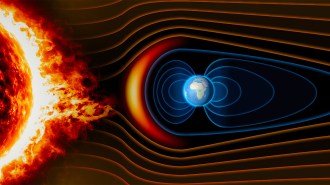 Earth
EarthA weaker magnetic field may have paved the way for marine life to go big
Decreased protection from cosmic radiation may have increased oxygen levels in the atmosphere and oceans, allowing animals to grow larger.
-
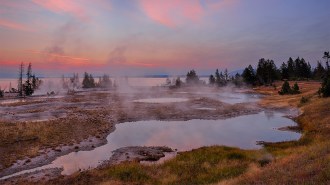 Earth
EarthA hidden danger lurks beneath Yellowstone
A volcanic eruption at Yellowstone is unlikely anytime soon, but evidence is growing that a violent hydrothermal, or steam, explosion is possible.
By Douglas Fox -
 Climate
ClimateAs the Arctic tundra warms, soil microbes likely will ramp up CO2 production
Experiments in mini greenhouses show how the tiny organisms lurking underground in a "sleepy biome" could be a contributor to climate change.
-
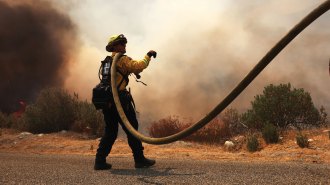 Environment
EnvironmentA new approach to fighting wildfires combines local knowledge and AI
Land managers in the western United States are using potential operational delineations, or PODS, to prepare for — and take advantage of — wildfires.
By Nikk Ogasa -
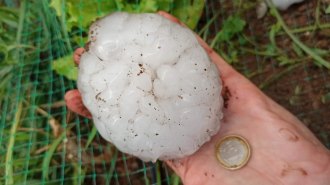 Climate
ClimateA ruinous hailstorm in Spain may have been supercharged by warming seas
Giant hail that pummeled northeast Spain in August 2022 could not have formed without climate change, computer simulations suggest.
-
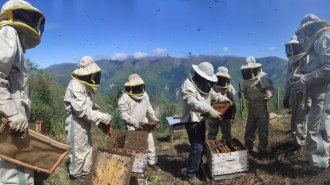 Animals
AnimalsXimena Velez-Liendo is saving Andean bears with honey
By training beekeepers, biologist Ximena Velez-Liendo is helping rural agricultural communities of southern Bolivia coexist with Andean bears.
-
 Climate
ClimateThree reasons why the ocean’s record-breaking hot streak is devastating
Ocean warming enhances hurricane activity, bleaches coral reefs and melts Antarctic sea ice. That warming has been off the charts for the past year.
By Nikk Ogasa -
 Climate
ClimateWill stashing more CO2 in the ocean help slow climate change?
Research is needed on how ocean carbon removal methods — such as iron fertilization and direct capture — could impact the environment.
-
 Climate
ClimateA rapid shift in ocean currents could imperil the world’s largest ice shelf
Roughly the size of Spain, the Ross Ice Shelf stabilizes major glaciers along Antarctica’s coast — and is at risk of retreating, a new study finds.
By Douglas Fox -
 Health & Medicine
Health & MedicineA new U.S. tool maps where heat will be dangerous for your health
The daily updated HeatRisk map uses color coding to show where the health threat from heat is highest and offers tips on how to stay safe.
By Nikk Ogasa -
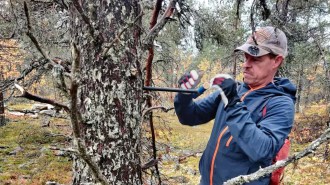 Earth
EarthPolar forests may have just solved a solar storm mystery
Spikes of carbon-14 in tree rings may be linked to solar flares, but evidence of the havoc-wreaking 1859 Carrington event has proven elusive until now.